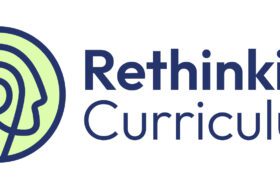From Reconnection to Resilience: The contribution of RSHE to children’s mental health.
As our school communities come together once more rebuilding, reconnection and recovery are at the heart of what we do within those communities. The impact on the mental wellbeing of staff and students alike has been considerable during the pandemic, and strategies that enable the restoration of resilience are key to recreating a vibrant culture of learning in our schools once more.
The new RSHE Curriculum framework has much to contribute to that process. Matching and developing resources at this time is vital for successful implementation.
In this webinar, delegates will have the opportunity to hear from Professor Barry Carpenter “From Reconnection to Resilience: The contribution of RSHE to children’s mental health”.
We welcome Paula Penny, Department for Education. Paula will provide an overview of the RSHE curriculum, including curriculum development, support for implementation, monitoring and evaluation and why RSHE is particularly important in supporting wider DfE policies around mental wellbeing, behaviour and safeguarding.
There will also be an opportunity to hear from Claire Donnachie, Deputy Director of the SFET Teaching School Hub. Following a successful bid in 2020, South Farnham Teaching School was selected by the DfE to become an RSHE Hub. As a case study school, Claire will talk about the approaches taken in the classroom and across the Trust to implementing and delivering the statutory RSHE curriculum: from planning and teaching, resources available, parental engagement, evaluation and feedback.
Resources
- Download presentation: Barry Carpenter
- Download presentation: Paula Penny
- Download presentation: Claire Donnachie
- The Recovery Curriculum
- NASEN article: The Recovery Curriculum
- Schools Partnership Programme
- From Disengaged to Engaged: a new lens on behaviour management
- Welsh study shows ‘lifelong footprint’ of the Covid pandemic on children’s mental health
- Attachment traits: A teacher-led enquiry
- Exploring Concepts of Self
- Engaging parents with relationships education policy
- Teaching about relationships, sex and health. Support and training materials for schools to help train teachers on relationships, sex and health education.
- RSHE curriculum overview
- Teaching about mental wellbeing
- Non-statutory guidance to aid curriculum planning. Information to help school leaders plan, develop and implement the new statutory curriculum.
- Supporting Effective Delivery Of The New Statutory RSHE Curriculum For Pupils With SEND – Primary Focused
- Supporting Effective Delivery Of The New Statutory RSHE Curriculum For Pupils With SEND – Secondary Focused
- Teaching RSHE to pupils with SEND
- The new Ofsted framework for PSHE education
- ACAMH webinar: Anxiety; Cues, Clues & Support for Young People in School
Our Presenters
Professor Barry Carpenter CBE OBE PhD FCCT
Barry has a career spanning over 40 years. His appointments include Professor of Mental Health in Education to Oxford Brookes University, and Honorary Professorships at universities in Ireland, Germany and Australia, as well as Principal, Chief Executive, and National Director for Complex Needs at the Government Department for Education. He has been a Fellow of the University of Oxford, and speaks and publishes internationally on special needs issues including “Girls and Autism” and ” Engaging Learners with Complex Needs”. He recently became a Patron for the ADHD Foundation, and is a Fellow of the Chartered College of Teaching. He serves as a Trustee on the Board of the Association of Child and Adolescent Mental Health (ACAMH).
He is the co- author (with his son, Matthew) of the Recovery Curriculum www.recoverycurriculum.org, which has shaped and influenced the thinking of many schools during the pandemic period.
Paula Penny (Head of the RSHE and Citizenship Policy Unit, DfE)
Paula has worked as a policy official in the Department of Education for over 20 years, and currently leads the policy unit responsible for RSHE and Citizenship. She has previously led on a range of policy areas including initial teacher training, school organisation, grammar schools and faith schools. Prior to joining the Department, Paula’s background was in HR and personal development.
Claire Donnachie (Deputy Director of SFET Teaching School Hub)
Claire is Deputy Director of the SFET Teaching School Hub with a network of over 300 schools, a thriving SCITT of 170+ trainees and an appropriate body, delivering the Early Career Framework for 255 ECTs.
Before this, Claire was Headteacher and Director of Teaching School at South Farnham School; a primary academy with 848 pupils aged from 4-11 years; consistently one of the highest performing schools in the country.
Previously, Claire taught English and worked as Director of School Centred Initial Teacher Training (SCITT) and Director of Teaching School at two large comprehensive secondary schools. She has over 20 years of teaching and leadership experience across primary and secondary schools in Surrey, as well as wider school to school support as a National Leader of Education (NLE) with a proven track record in leading self-improvement and cross-phase activity.
Following a successful bid in 2020, South Farnham Teaching School was selected by The Department for Education to become an RSHE Hub. Claire has led this central programme of support for schools in the South East delivering training on the new statutory curriculum to over 600 primary and secondary schools. This academic year, the Hub continues to deliver this free phase specific training, updated to focus on Ofsted’s review of sexual abuse in schools and colleges, to consider a whole-school approach to addressing issues and creating a culture where sexual harassment is not tolerated.
Claire believes in life-long learning holding a Masters in Education and a National Professional Qualification for Headship. She is passionate about career progression and development for staff at all stages of their career, leading the delivery of training programmes for support staff, teachers and leaders across all schools, irrespective of phase, faith or fortune, to ensure every child has access to high quality teaching, learning and outcomes.





